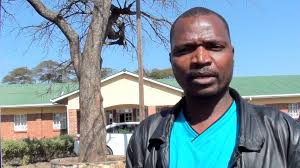By Byron Mutingwende
The 2017 National Budget comes against a background of limited employment and a tight fiscal space, a development that has a devastating impact on the wellbeing of the youths.
Speaking during a half day meeting organized by the Youth Empowerment and Transformation Trust (YETT) on Wednesday 14 December 2016 at their Harare offices for the 2017 Post Budget highlight and analysis discussion, Tinashe Gumbo, an economist with the Zimbabwe Coalition on Debt and Development (ZIMCODD) said that weak expenditure and programme management on the part of the government often result in funds never reaching the intended beneficiaries.
“In an environment of limited employment or business opportunities for young people, limited fiscal space has a devastating impact on their well-being. Even when funds have been allocated to specific programmes – whether for minorities, youths, children or the disabled – weak expenditure and programme management can result in funds never reaching the intended beneficiaries,” Gumbo said.
The budget comes as Zimbabwe is grappling with high levels of unemployment. The few that are working in the formal sector but are poorly remunerated while the government and most companies have to shoulder a huge and often unsustainable wage bill.
Since Zimbabwe adopted the multi-currency system in 2009, it is battling a cash crisis and the liquidity crunch has led the government to introduce bond notes in anticipation of easing the crisis.
The situation has led to social unrest with citizens forming protest movements and demonstrations increasing.
Speaking at the same occasion, Takura Zhangazha, a political and media analyst said that the 2017 National Budget is in the fourth year of the implementation of the Zimbabwe Agenda for Socio Economic Transformation (ZIMASSET) and comes as the country is approaching the election period in2018.
The Budget also comes in the context of drought and climate change; water crisis in urban areas; a subdued health situation characterized by the shortage of essential medial drugs and ageing infrastructure; a huge and unsustainable public debt of over $11 billion; poor public fginance management systems punctuated by high profile corruption cases; non implementation of AG reports; and the loss of $15 billion diamond money among other major highlights of the economic situation.
“The 2017 National Budget is generally not people-centred. The Budget should be crafted in a way that it will be able to afford the public affordable health and education and accommodation among other essential needs. We are beginning to witness an incestuous relationship between the government and private capital for profit. This is why we now have terms like ‘ease of doing business’ – often used by governments which believe that the government should not help the public,” Zhangazha said.
At a glance the total Budget for 2017 is $4.1 Billion compared to $4 Billion in 2016. The Ministry of Primary and Secondary Education got the biggest chunk of $803,771,000 compared to $810,430,000 in 2016, signifying a total of 23.83% of the Budget.
The Home Affairs ministry got $364,308,000 down from $395,854,000 in 2016.
The Defence ministry got $340,522,000 down from$357,665.000 in 2016.
The minisrty of Agriculture, Mechanisation and Irrigation Development got $292,696,000 up from $145,089,000 in 2016,
The critical ministry of Health and Child Care got $281,976,000, representing 9, 72% of the Budget yet it was allocated $330,789.000 in 2016.
“The allocation to the health ministry is a far cry from the Abuja Declaration of 15 percent. This shows that the copuintry has misplaced priorities and the government has no political will to improve the health delivery,” said Emmanuel Gasa, the Executive Director of The AIDS and Arts FoundationZimbabwe (TAAF).
Gasa bemoaned the lack of access to social amenities like recreational facilities for the youth, a situation he blamed for an increase of crime and drug abuse among the young people.
In low-income urban areas like Epworth and the Royal KK area in Caledonia under Harare, the youth, especially teenage girls are selling sex for as little as 25 cents due to economic hardships.
There is need to encourage the young people to visit health centres for the promotion of good health seeking behaviour which involves HIV testing and counselling services
The Ministry of Higher and Tertiary Education, Science and Technology was allocated $200,886,000 compared to $304,235,000 in 2016, which is 8.94% of the total Budget allocated.
Sadly, the Ministry of Youth, Indigenisation and Economic Empowerment was allocated $17,192,000 compared to $19,801,000 in 2016, which represents an allocation of a mere 0.58% of the total budget.
By and large, sustainable development cannot be achieved without assuring that all women and men, and girls and boys, enjoy the dignity and human rights to expand their capabilities, secure their reproductive health and rights, find decent work and contribute to economic growth.
The youths said that the national budget can be used to support awareness raising of the instruments and their provision as well as building the capacity of the youths to be self reliant in pursuing their social, economic and political rights.
